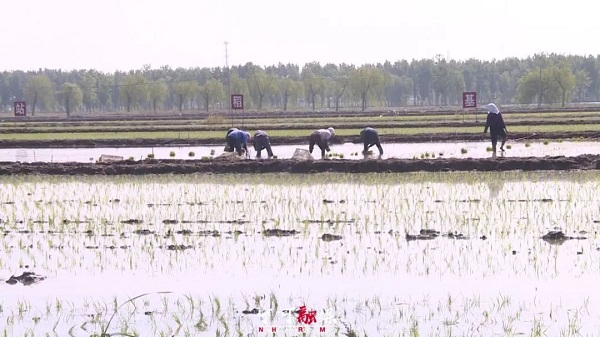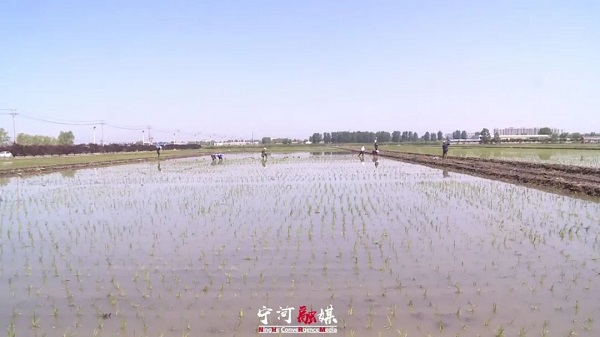This year, Ninghe district is recognized as "a strong seed industry area" in Tianjin, building five major seed source bases and industrial clusters of "rice, breeding pig, breeding fish, breeding crab, and seedlings". It expands the local brand advantages, and promotes the export of agricultural products contributing to rural revitalization.

The planting field in Ninghe district [Photo/WeChat account: Media Convergence of Ninghe District]
In recent years, Dabeijiangu town in Ninghe district has accelerated the revitalization of the seed industry through the development of leading agricultural enterprises.
Tianjin Jinshi Shennong Seed Industry Co., Ltd. has established a seed research and demonstration base covering an area of 300 mu in the town. It has also established 5,000 mu of seed fields and explored new technologies for improving the management of "Xiaozhan" rice. In addition, the company has invested in new types of biological bacterial fertilizers to effectively improve the quality of rice and increase farmers' income, strengthening food security.
Currently, the rice variety under cultivation in Dabeijiangu town has a growth period of about 178 days, making it the longest growing period for “Xiaozhan” rice variety in China. High quality varieties of plant, combined with the unique water resources in Ninghe district, contribute to the production of high-quality and high yields of rice.

The planting field in Ninghe district [Photo/WeChat account: Media Convergence of Ninghe District]
Since the beginning of this year, Ninghe has been implementing the 400-million-yuan (about $56.3 million) investment in the expansion and upgrade of the Ninghe breeding pigs farm and the 300-million-yuan investment in the rice seedling project. After these projects are completed, it is expected to form a production scale of 30,000 mu of rice, 60,000 breeding pigs, 6 billion fish, 1 billion crab, 75 million seedlings, 34 million bags of mushroom seeds, and 100,000 imported tulip bulbs.





